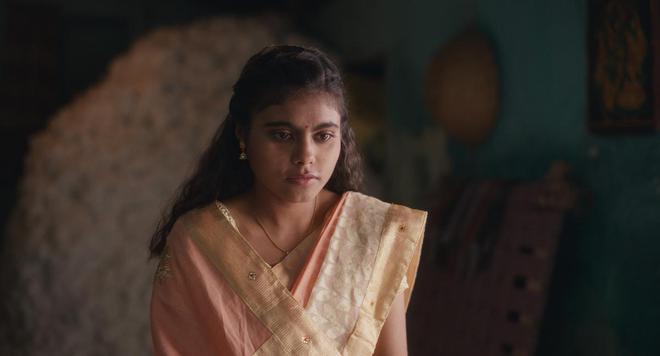It literally took a village for Jayant Digambar Somalkar to make his debut film Sthal (A Match), set in his childhood home in his native village, and starring non-actors from the region.
The Marathi film, which earlier this year became the only Indian film to be chosen for the Toronto International Film Festival (TIFF) in the festival’s discovery programme (for new filmmakers), won the NETPAC award for the best Asian film, and is being screened in the Kaleidoscope section of the 28th International Film Festival of Kerala (IFFK).
“I wanted this film to be very authentic and real. While writing the film, I was visualising the places I have known and thinking a lot about my Dongargaon village located in the cotton belt of Vidarbha region in Maharashtra,” says Somalkar in an interview to The Hindu.
“In the end, I ended up shooting in the same house I was born in. I chose to shoot in real locations with real people. All of them from my village and the nearby town were facing the camera for the first time,” he adds.

For casting the protagonist, the team held an audition in the college he studied in, but the rest of the cast were gathered by looking for people from the village who fit the body language and traits of the characters.
“I was looking for people who spoke the correct accent of Varhadi, a Marathi dialect spoken in Vidarbha. Then, we did a basic workshop. We did not teach them acting, but we worked on their body language and made them open up,” says Somalkar.
“We wanted them raw. I didn’t want them to act like Shah Rukh Khan. I tried to involve my entire family in the process. So, you can see my mother in the opening scene, and my sisters dancing at a wedding. It is a very personal movie in that sense,” he says.
In a scenario representative of the situation faced by many young women in the country, Savita, the protagonist of Sthal, is being forced into an arranged marriage by her family, despite her wish to land a job after graduation.
“I have been observing the processes that happen around arranged marriages in Maharashtra from childhood, like how the guys come to see the girl, ask questions and choose the bride based on skin colour and height. But during childhood, you don’t question, you just follow traditions,” says Somalkar.
“But it was when I went with my cousin for his matchmaking process that I, for the first time, felt that there is something wrong with the whole thing. In the movie, Savita is the daughter of a cotton farmer, and since it is set in the Vidarbha region known for the farming crisis, these issues also form part of the film,” he further adds.







